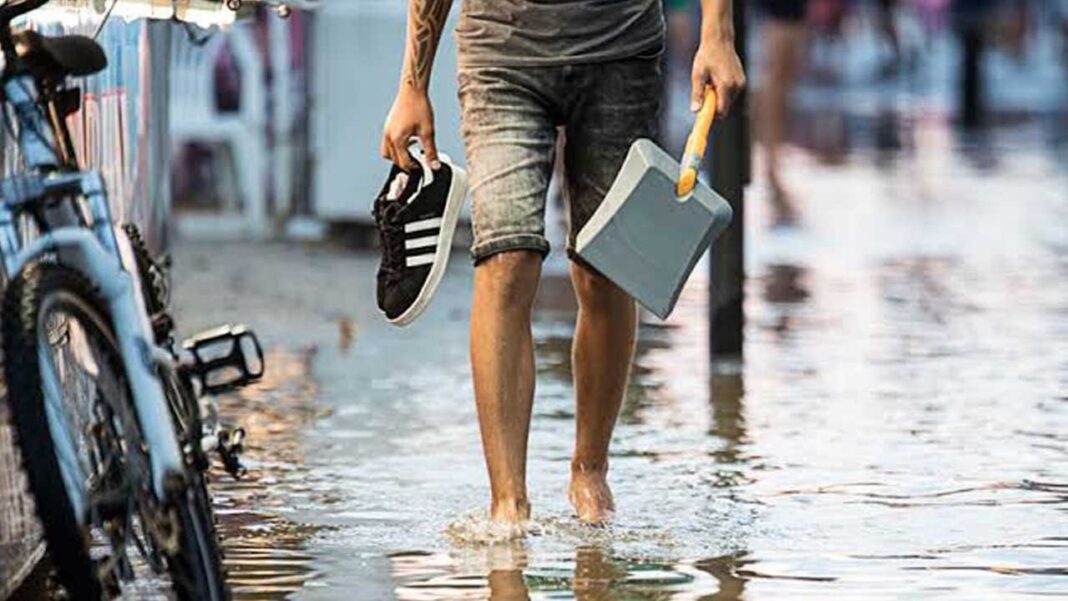Leptospirosis, one of the most common zoonotic diseases, is spreading in some parts of the country! Also known as “weil’s disease”, it can affect one who comes into contact with water, soil, or food that is contaminated with animal faeces. The Pioneer’s SHIKHA DUGGAL speaks to experts and brings a detailed report on the disease.
The rain brings with it several infections due to dirty water, which are collectively known as monsoon-related illnesses.Leptospirosis, one of the most common zoonotic diseases, is spreading in the country! Also known as “weil’s disease”, it can be contracted if one comes into contact with water, soil, or food that is contaminated with animal faeces. Sickening!
Leptospirosis poses a significant risk, as the bacterial illness can cause some really serious symptoms. Wondering how? Let us hear from Dr. Gaurav Jain, Consultant in Internal Medicine at Dharamshila Narayan Super Speciality Hospital. “The likelihood of exposure increases as a result of the bacteria’s optimum environment being created by high moisture levels! Early diagnosis is difficult because flu-like symptoms are present. If left untreated, it progresses to cause respiratory distress, liver and kidney damage, and possibly death,” explained the doctor.

He suggested that prompt medical care is essential in order to combat this threat linked to the monsoon. He added, “Leptospirosis cases surpassing a hundred during monsoons raise concern. Factors contributing to the surge include inadequate sanitation, waterlogged areas, and increased exposure due to floods. People wading through contaminated water or working in agriculture are at higher risk. Urbanisation and climate change amplify the problem. Awareness gaps about preventive measures and delayed treatment add to the rise. Strengthening sanitation, promoting hygiene, and educating communities are essential to curb the escalating cases of leptospirosis during the monsoons.”
Furthermore, he added, “Leptospirosis primarily affects animals, as it is caused by the Leptospira bacteria found in their urine. Animals such as rats, livestock, and wildlife are common carriers! Humans contract the disease through direct contact with contaminated water or soil, making it prevalent during rainy seasons. The bacteria’s adaptation to animals’ renal systems allows them to thrive and multiply, contributing to their predominance among animal populations. Effective control measures involve managing animal reservoirs and minimising human exposure to contaminated environments.”
So it is clear that this condition thrives in tropical regions due to the warm and humid climate that supports the bacteria’s survival outside of hosts. Tropical areas often have poor sanitation and limited resources, facilitating bacterial transmission. Rural populations engaged in farming or in close contact with animals are at higher risk! Additionally, tropical regions host diverse wildlife that can carry and spread the bacteria.
It can also often present as diarrhea or as a flu syndrome. It can be missed easily unless the doctor maintains a high index of suspicion! For example, Dr. Anil Ballani, Consultant Internal Medicine at D Hinduja Hospital, claimed, “Leptospirosis often presents with complications of liver cell failure and can be mistaken for the diagnosis of jaundice. It can also present with renal failure sometimes!
Once there is lung involvement, mortality is greater than fifty percent. More people are staying in slums, and there is water stagnation around slums and dug-up sites. There are more rats in poor-staying areas and breeding areas because of open drainage. In flooded areas, more people walking through contaminated water has also led to increasing cases.”
Inadequate sanitation and poor waste management practices in some areas contribute to the spread of the disease. Furthermore, lack of awareness about preventive measures and delayed diagnosis also play a significant role. So Dr. Manish Arora, Sr. Consultant at Shri Balaji Action Medical Institute, informed me, “It is important to stay away from floodwater, especially if it appears dirty or contaminated. This includes avoiding wading or swimming in flooded areas. If you must be in contact with floodwater, make sure to wear protective clothing such as waterproof boots, gloves, and long sleeves to minimize skin exposure.
Insect repellents can help prevent mosquito bites, which can also transmit leptospirosis. Ensure that your surroundings, including your home and work area, are kept clean and free from potential rodent habitats.This can help reduce the likelihood of exposure to infected urine or droppings. Wash your hands thoroughly with soap and clean water after coming in contact with potentially contaminated areas or objects. It is crucial for pet owners and livestock farmers to be aware of this link and take appropriate precautions to prevent the spread of this infection. The presence of abundant rainfall further aids in the spread of leptospirosis by facilitating the contamination of water sources with animal urine containing the bacteria.”
There are essential methods for leptospirosis prevention during the monsoon. Stay away from standing water and muck, especially in places that are susceptible to flooding. To reduce exposure, put on protective gear like clothing and shoes. Maintain good personal hygiene and clean any cuts or wounds right away. Rats carry diseases, so keep your living environments free of them.
Encourage immunization among high-risk populations, such as sewer workers and farmers. Public awareness initiatives are essential for informing populations about the illness and available preventative strategies. We can considerably lower the risk of leptospirosis and ensure a safer monsoon season by putting these tactics into practice.




